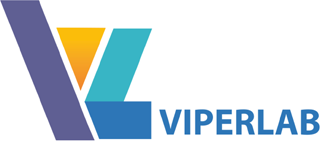webinar
Based on the fruitful results and experiences of SOPHi@Webinar the internal e-learning platform of 7FP-SOPHIA project and CHEETAH webinar Platform , VIPERLAB-KEP platform is continuing to offer on-line in-depth training and discussions to all VIPERLAB members by targeted courses/seminaries open, on request, to any interested external university or research organization, particularly students and resarchers at their early stage of their career on:
- Comprehensive information and transfer of knowldege on different R&D topic concering Joint Research Activities
- A presentation on several outstanding technical-scientific results highlighting the potential in utilizing the infrastructure/technique/scientific protocols and sharing common expertise
By collecting and proposing the whole set of lectures as complete "virtual" courses in PV organized by topics in dedicated specific web CHEETAH KEPT-PV offers new set of on-line courses named VIPERLAB Virtual Academy courses.
Search
Took place on Dec, 17th 2024
This webinar, hosted by Dr. Daniele Braga (Fluxim), is a must attend for researchers exploring advanced strategies in perovskite device fabrication and scaling. The invited speaker on Tuesday 17th Dec, at 10am CET will be Professor Annalisa Bruno, PhD Bruno from Nanyang Technological University Singapore.
Took place on Dec, 09th 2024
This webinar is part of our efforts in TESTARE to promote knowledge exchange and innovation in photovoltaic research. Explore cutting-edge research and innovations aimed at addressing key challenges in the development of perovskite solar devices. Distinguished speakers will share insights into outdoor stability, advanced testing protocols, and AI-based performance analytics.
Took place on Jan, 17th 2024
The “VIPERLAB Webinar on Standardization for Perovskite PV” is a half-day online event on standardization activities in the field of PV, focusing on Perovskite materials and devices. Experts from international research institutes report on the current activities of the IEC Technical Committees 113 and 82, ISOS and PSK-ISOS, as well as on standardization activities regarding data ontologies and RDM.
Took place on Jan, 11th 2024
The webinar offered by ENEA is devoted to the presentation of the kSEMAW software. kSEMAW is a useful tool for scientists and technicians dealing with optical devices based on optical coatings. More precisely, kSEMAW is a workspace for the analysis of Spectrophotometric (SP), Ellipsometric (ELI) and Photothermal Deflection Spectroscopy (PDS) measurements.
Took place on Nov, 13th 2023
Perovskite SJ and Pero/Si Tandem technologies are attracting significant attention from both the scientific and industrial communities thanks to the rapid increases of the conversion efficiency, Several efforts are put on the ground to chracterize the technological bottlenecks, overcome them and to push the technology toward the commercial world through the photovoltaic module upscale. Today we present the TNO-Solliance - S25 Process PSK Line and Swansea University - PV manufacturing and Testing Facilities Research Infrastructure offers state-of-the-art fabrication and characterisation equipment for the printing and testing of solar cells and PV module devices
Took place on Jun, 28th 2023
Perovskite SJ and Pero/Si Tandem technologies are attracting significant attention from both scientific and industrial societies due to rapid increases in efficiency, from approximately 3% in 2009 to over 33% today. Several efforts are made to characterize the technological bottlenecks, overcome them and push the technology to the commercial world through the PV module upscaling. This imposes a pre-industrial stage, where different equipment from coating systems such as blade coating, slot-die coating and spray coating to printing paths such as screen, inkjet and gravure printing as well as methods of vacuum deposition and laser processing are currently used to support the potential of PSCs to move towards their industrialization. VIPERLAB today introduces CEA and IMEC VIPERLAB Research Infrastructures offering State-of-the-art equipment for Fabrication, Characterization, Encapsulation, Upscaling and Testing of Perovskite SJ and Pero/Si Tandem Solar Cells
Took place on May, 24th 2023
The 2nd yearly meeting of the Viperlab project was organized by ENEA partner in Portici from the 24th to the 25th of May. The event was joined to 2nd workshop on precise Measurement of #Perovskite Silicon Tandem #SolarCells. All 28 participants, representing each partner, workpackage and project's task, were actively engaged in discussions and shared their working group achievements, challenges, and lessons learned during the previous period. The meeting provided a platform for open dialogue, fostering an environment of mutual trust and cooperation, to achive in time the project goals.
Took place on Jan, 26th 2023
The stability of perovskite devices is a key point should be addressed to achieve commercialisation. The key factors influencing the stability of the devices are the exposure to oxygen and moisture, UV light, solution processing and thermal effects. Encapsulation and standard testing protocols are required to check and improve stability. The two presented infrastructures offer state of the art equipment for the Perovskite Stability testing of materials and devices.
Took place on Dec, 15th 2022
We present other two VIPERLAB Research Infrastructures. The first, CHOSE consists of two main infrastructures: the CHOSE@ROME, is located on the campus of the University of Rome Tor Vergata (Italy), and focuses on technological manufacturing processes and device characterization. CHOSE@TURIN, is an infrastructure associated with the University of Turin (Italy) focused on the development of materials. The secon, AIT Viperlab Reseach infrastructures focusses on characterization and reliability tools for the accreditation tests of PV modules, and tools for PV deposition, characterization/reliability and development of thin film coatings.
Took place on Nov, 30th 2022
H2020 VIPERLAB Project offers free access to the state-of-the-art perovskite EU infrastructures that cover the whole innovation/value chain from material preparation to characterization of perovskite devices and modules. Today we present two very relevant VIPRLAB research Infastructures: FRAUNHOFER Solar Cell Manufacturing & Characterization & EPFL/CSEM – PV lab/PV Center & PSK/SI Tandem processing.











